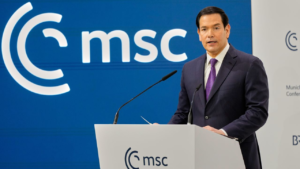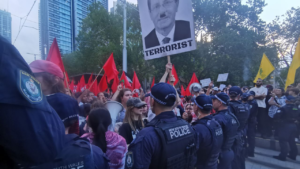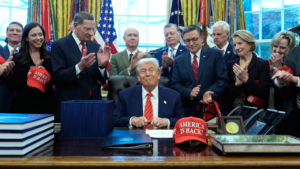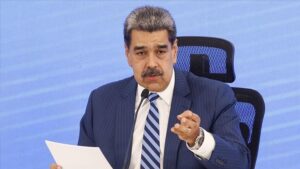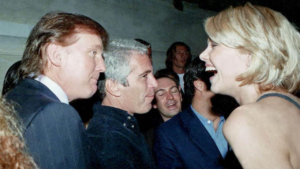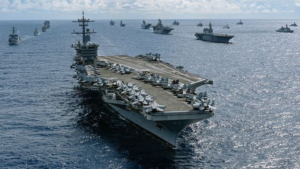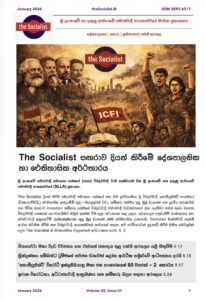This article was originally published in the World Socialist Web Site on 13 November 2025.
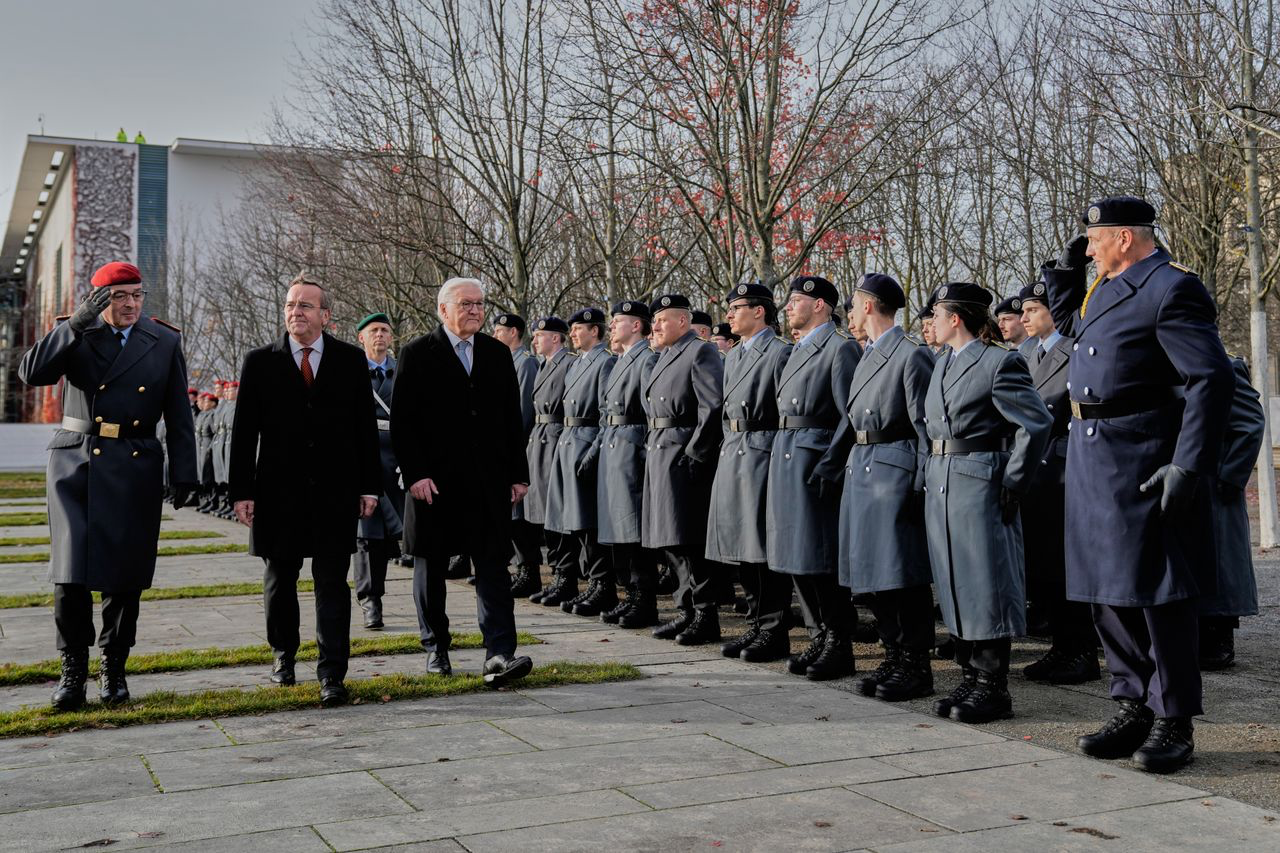
The solemn oath-taking ceremony in front of the Reichstag (parliament) and the speeches by Defence Minister Boris Pistorius and Federal President Frank-Walter Steinmeier (both Social Democrats, SPD) on the occasion of the 70th anniversary of the Bundeswehr (Armed Forces) recalled the darkest days of German militarism. They underscored the disastrous traditions and war aims to which German imperialism is once again returning.
Significantly, on the very same day, the governing parties agreed on a new military service law providing for the compulsory registration of all young men—aimed at drafting the necessary cannon fodder for new imperialist wars.
Eighty years after the downfall of the Third Reich and the greatest crimes in human history, the military once again dominates the German capital. In a martial display—shielded from the public—280 recruits marched between the Reichstag and the Chancellery and were solemnly sworn in. The spectacle was shown live on state broadcaster ZDF and celebrated in the news programmes, with the obvious goal of spreading the poison of militarism throughout the population. Public oath-taking ceremonies like this have their origins in Prussian militarism, which were expanded under the Kaiser’s Empire and then elevated to a quasi-religious cult under the Nazis.
In their ceremonial addresses, Pistorius and Steinmeier sought to obscure the historical roots of the Bundeswehr. “From the shadows of our history has emerged an army, a special army that is fundamentally different from all its predecessors,” claimed Pistorius, describing the force as “firmly anchored in democracy, committed to law and freedom.”
This portrayal is as false today as it was at the Bundeswehr’s official founding on November 12, 1955—only 10 years after the capitulation of Hitler’s Army, the Wehrmacht, the greatest killing machine in history. Tellingly, at that time the army was still called the “new Wehrmacht.” It was not until 1956 that it was officially renamed the Bundeswehr—and the name reflected its purpose. Of the 44 generals and admirals appointed by 1957, all came from Hitler’s Wehrmacht, most from the General Staff of the Army. By 1959, of 14,900 career officers, 12,360 were from the Wehrmacht and 300 even from the SS leadership corps.
Military historian Wolfram Wette wrote in 2011 that this personal continuity had “heavily burdened the internal life of the army” and that “for a long time there existed not an unbroken, but nevertheless dominant tendency to orient itself toward the traditions before 1945.”
This development intensified after German reunification 35 years ago. As early as 1991, a general declared: “Everything must be oriented toward the Bundeswehr’s warfighting capability.” What followed were worldwide military interventions—in Kosovo, Afghanistan, the Middle East and Africa—which, in alliance with the leading NATO powers, reduced entire regions to rubble.
Today, the orientation to the traditions of the Wehrmacht is no longer a “tendency” but official policy. German imperialism is systematically preparing for a major war against Russia and has launched the largest rearmament programme since Hitler. Pistorius made the direction unmistakably clear during the anniversary ceremony: Germany must now “act decisively and without hesitation,” radically expanding “finances, equipment, and infrastructure” and aligning the Bundeswehr with “national and alliance defence”—a euphemism for the creation of an army for total war.
At the Bundeswehr Conference a week earlier, Chancellor Friedrich Merz (Christian Democrat, CDU), Pistorius and General Inspector Carsten Breuer, the most senior military brass, left no doubt about their megalomaniacal plans, which workers and youth will be made to pay for—with their social and democratic rights, and ultimately with their lives.
Merz once again demanded that the Bundeswehr become “the strongest conventional army in the European Union, as befits a country of our size and responsibility.” Breuer spelled out the dimensions this would entail: “460,000 soldiers—that is the framework we ultimately have to reach.” This would not only make Germany’s army the largest in Europe but would openly break the Two Plus Four Treaty, in which Germany pledged to limit its military to a maximum of 340,000 soldiers and to renounce nuclear weapons—something now openly questioned in government and media circles.
Breuer made unmistakably clear where this path leads: toward war, destruction and death. It is about soldiers “fighting at the front line. That’s what it’s about. It’s about the sharp end.” At the end of his war speech, he declared: “For a Bundeswehr that fights successfully … for Fight Tonight, for 2029 and 2039, for a combat-ready Bundeswehr.”
The new/old bogeyman is Russia—the same power against which the German military waged two world wars in the 20th century. Under the Nazis, it carried out a barbaric war of annihilation that killed at least 27 million Soviet citizens and culminated in the Holocaust. It is the declared aim of Breuer and the government to once again be ready by 2029 to wage war against this strategically central, resource-rich nuclear power.
Pistorius reaffirmed plans to raise the defence budget to “around €153 billion by 2029.” Added to this are hundreds of billions in war-ready infrastructure from the €1 trillion in war credits already approved. “Infrastructure is essential for our defence capability,” emphasised the defence minister, calling for “reinforced transport routes,” “efficient depots, barracks, training grounds and logistical hubs.”
The central task is the deployment of NATO and Bundeswehr troops to the eastern flank. Pistorius proudly announced the permanent stationing of Panzer Brigade 45 in Lithuania: “The message must be: Germany leads the way—as a pace-setter among European nations.” For the 5,000 soldiers stationed there, he said, “we need modern equipment and capabilities in all dimensions—not for storage, but for our men and women on the ground.”
This has nothing to do with “freedom” or “democracy” but with the old imperialist great-power interests: German dominance over Europe and the violent enforcement of its economic and geopolitical goals in Eastern Europe and against Russia. The reactionary Russian invasion of Ukraine in 2022 was deliberately provoked by the leading NATO powers to push through an agenda of total militarisation and war preparation.
Pistorius stated openly that militarisation must encompass society as a whole: “We wanted and still want to make the Bundeswehr more visible throughout the country.” For the 70th anniversary, he said, this visibility was being brought “back to the capital as an expression and recognition of 70 years of readiness, performance, and loyalty.”
That German militarism can once again raise its head so aggressively is due to the fact that all the establishment parties support the war course. Alongside the far-right Alternative for Germany (AfD), whose militarist agenda the government is in practice implementing, the Greens and the Left Party have also demonstratively backed the Bundeswehr.
Left Party spokesperson Ulrich Thoden thanked the troops for their contribution to the “stability and defence of democracy.” Green Party politician Sara Nanni enthused about a new “warmth” between the army and the population and wished the troops “courageous politicians who want to hear plain speaking—who stand by the troops and this country.” The Left Party and the Greens had already joined the governing parties, the Christian Democrats and Social Democrats, in approving the war credits in both chambers of parliament.
The only party that opposes German militarism and the pro-war policy, and which gives expression to the widespread opposition among workers and youth, is the Sozialistische Gleichheitspartei (Socialist Equality Party, SGP). It advances the only realistic perspective to prevent a third world war: the building of an independent socialist movement of the international working class, which will overthrow the capitalist profit system—the root of war and fascism.

